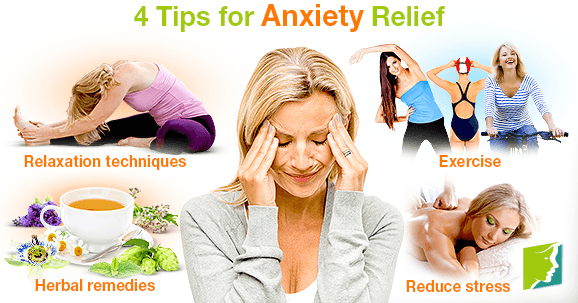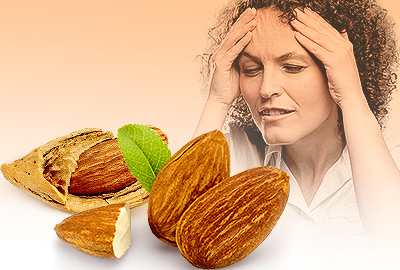Anxiety is described as a psychological state that is characterized by amplified feelings of worry. Unlike the occasional nervousness we all experience, anxiety is constant and persistent. Anxiety disorders affect more than 40 million Americans on average, and occur two times more in women than in men. Anxiety disorders come in many forms, including generalized anxiety disorder, panic disorder, social phobia, post-traumatic stress disorder, and obsessive compulsive disorder. There are various methods for anxiety relief, so it is important to find out which one works best for you, relative to your condition.
Symptoms of Anxiety
Symptoms of anxiety can be divided into physical and psychological. Physical symptoms can include sweating, dizziness, increased heart rate, shortness of breath, muscle tension, insomnia, and headaches. Psychological symptoms can include feelings of dread, intense fear, restlessness, irritability, and constantly anticipating disaster.
Anxiety Relief
These tips can help relieve anxiety and its symptoms.
Relaxation techniques
Relaxation techniques are cost-effective and safe, and they can provide many benefits like lowering blood pressure, reducing stress, increasing blood flow, improving mood and concentration, and preventing fatigue. A few beneficial relaxation techniques include yoga, meditation, visualization, and progressive muscle relaxation.
Exercise
An effective way to reduce stress and release “feel-good” neurotransmitters, like serotonin, is to exercise regularly. It is generally recommended to get at least 30 minutes of aerobic activity every day. Exercising can also significantly increase energy levels and improve mood. Walking, cycling, and swimming are all good forms of low-impact workouts that can help ease anxiety.
Herbal remedies
Herbs with sedative characteristics can help ease anxiety symptoms, calm the nerves, and soothe restlessness. Chamomile, lavender, hops, valerian, lemon balm, and passion flower are all calming herbs that are widely used for treating anxiety. These herbs may be taken in supplement or extract form, (i.e., tablets, teas, tinctures) or you can add these essential oils to a warm bath.
Reduce stress
Taking time every day for yourself is vital for your overall health and easing anxiety. Getting a massage, reading, and meditating are all effective ways to relax the body and mind. Making time to see friends and family can also help you unwind after a long day and relieve tension and stress.
Anxiety is a mental condition that can affect everyday life and personal relationships. There are many methods that have shown to be beneficial in relieving anxiety. Most treatments are inexpensive and easy to incorporate into a daily routine. It is important to try out different treatments and find the option that works best for you. If the featured relief tips are not effective, it may be time to talk to your doctor about therapy or prescription medication.
Sources
- National Institute of Mental Health. (n.d.). Anxiety Disorders. Retrieved September 19, 2014, from http://www.nimh.nih.gov/health/publications/anxiety-disorders/index.shtml
- Office on Women's Health. (2012). Anxiety disorders fact sheet. Retrieved September 19, 2014, from http://www.womenshealth.gov/publications/our-publications/fact-sheet/anxiety-disorders.html




